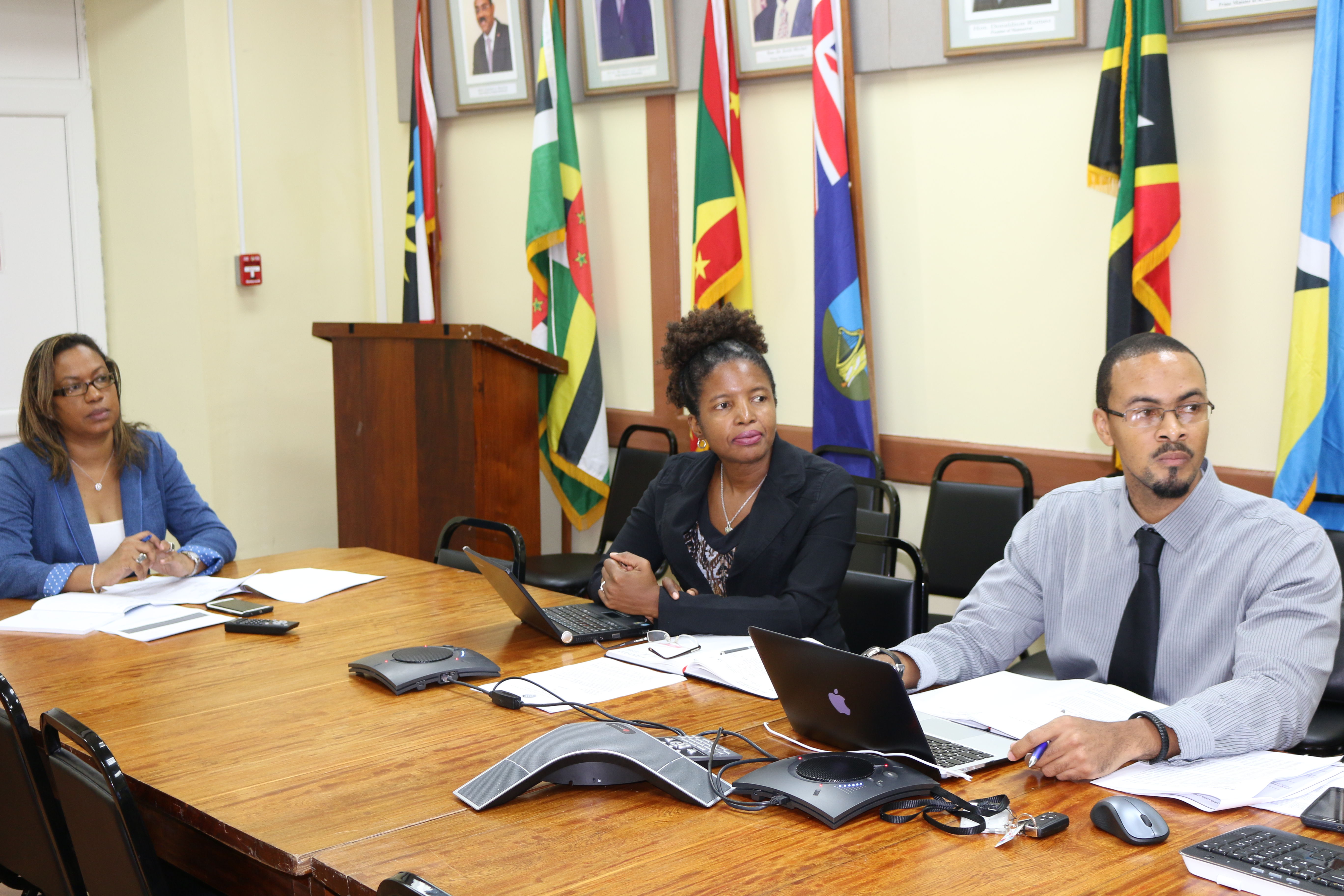OECS Ports prepare for Free Circulation of Goods
Customs Union to facilitate Intra-regional Trade
The second meeting of the OECS Port Management Committee was convened online via zoom web-conference on Friday 17th February 2017. The meeting was largely focused on engaging OECS Port Authorities on the policies and procedures for facilitating the entry of goods into the OECS Customs Union as well as the free circulation of goods in the OECS Economic Union area. A key objective of this exercise is to ensure that Port Managers are apprised of their new role and function in the process of creating a Customs Union within the OECS.
The Trade Policy Unit of the OECS Commission made presentations to the Port Authorities on the Guiding Principles and Draft Procedural Arrangements for the OECS Customs Union and Free Circulation of Goods regime, with specific emphasis on the need for the Ports to enhance ICT Connectivity with the Customs Department and Shipping Agents. Port and Customs officials across Member States are expected to play an active role in the logistical arrangements for differentiating goods subject to regular import procedures from goods in free circulation.
The Port Authorities also highlighted the need to revise existing port charges across Member States and develop an OECS Port Tariff/Pricing Structure which is more up-to-date and commensurate with the services and operations currently being provided. A regional pricing structure is viewed as a strategic approach to help influence a reduction in the high freight charges currently being levied by international shipping lines that service OECS Ports. It is envisioned that this new Tariff/Pricing Structure would greatly support the efficiency and expansion of the OECS Agro Shipping Initiative, which is geared towards moving agricultural produce throughout the OECS and wider CARICOM, using OECS registered vessels. Coordinator of the Agro Shipping Initiative, Sunita Daniel, made a presentation to the Meeting on the progress of this initiative to date.
Another critical issue discussed at this meeting was the need to build the capacity of Port personnel across the OECS to better provide services to importers and exporters in the Economic Union. The OECS Commission informed the Meeting of plans for a second round of training for Port Managers and Operators in 2017, under the OECS-Singapore Joint Training Programme sponsored by the Singapore Cooperation Programme. Port Managers indicated a number of priority areas in which they require support for capacity building in order to service the region more efficiently. These areas include Occupational Health and Safety, ICT Integration, Environmental Efficiency, and Port Marketing.
The Port Management Committee (PMC), which was established in March of 2016, is a subcommittee of the Regional Task Force on Free Circulation of Goods. Its mandate is to address matters relating to the operations and management of air and sea ports in the OECS in facilitating free circulation of goods within the Economic Union. Membership comprises senior management from both the air and seaport authorities across the OECS, as well as associate members from the Port Management Association of the Caribbean (PMAC), and the Caribbean Maritime Institute (CMI).



